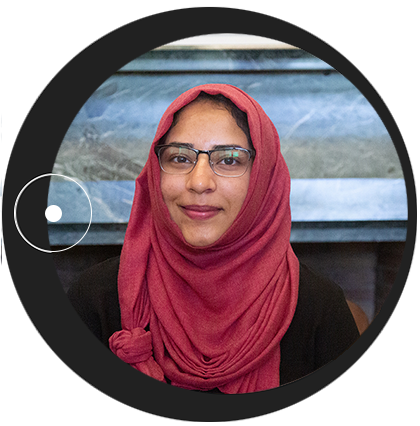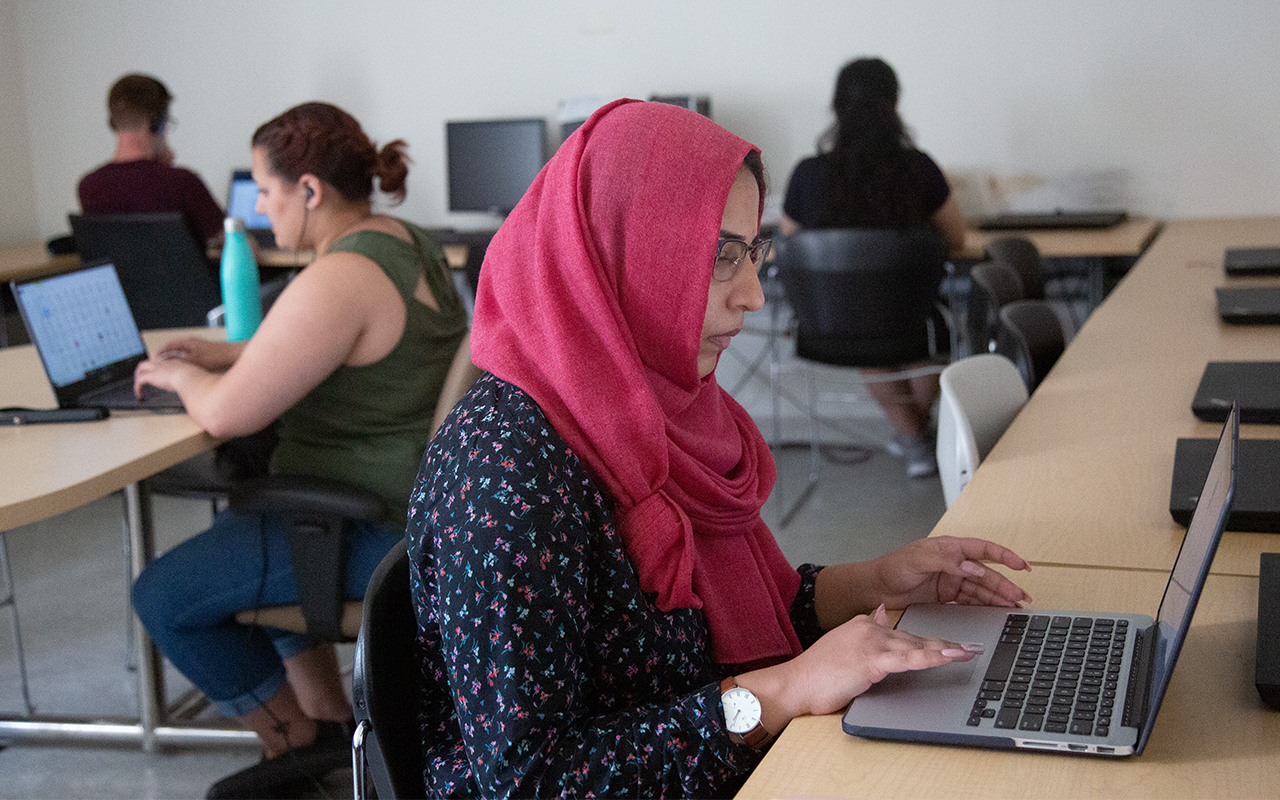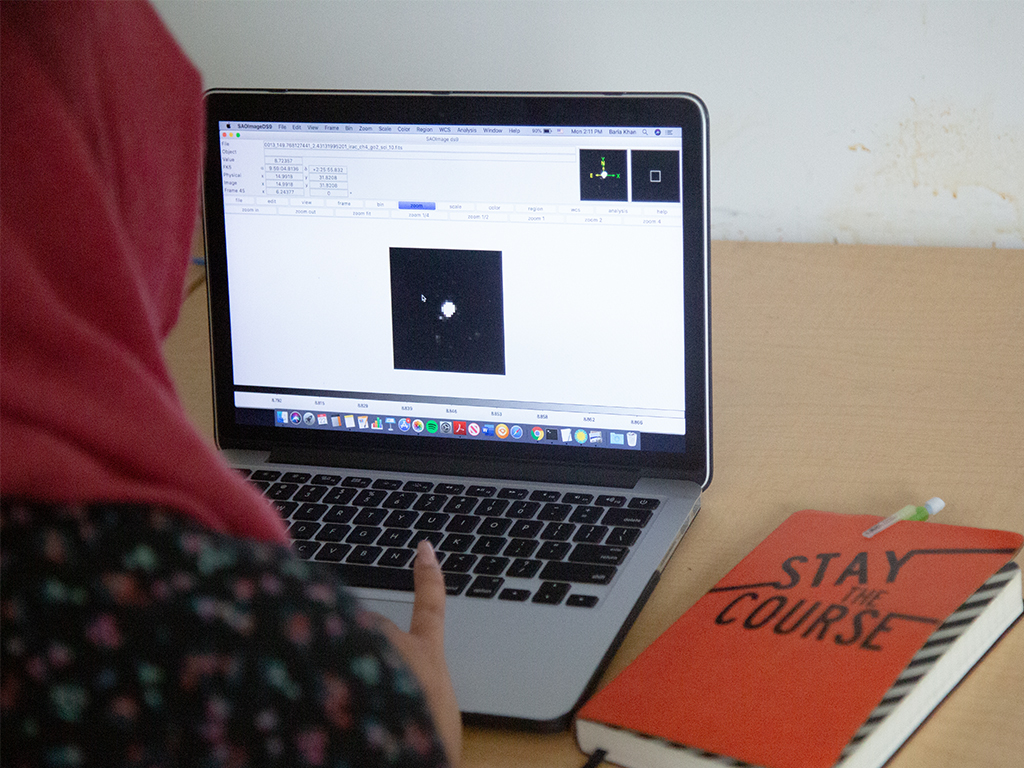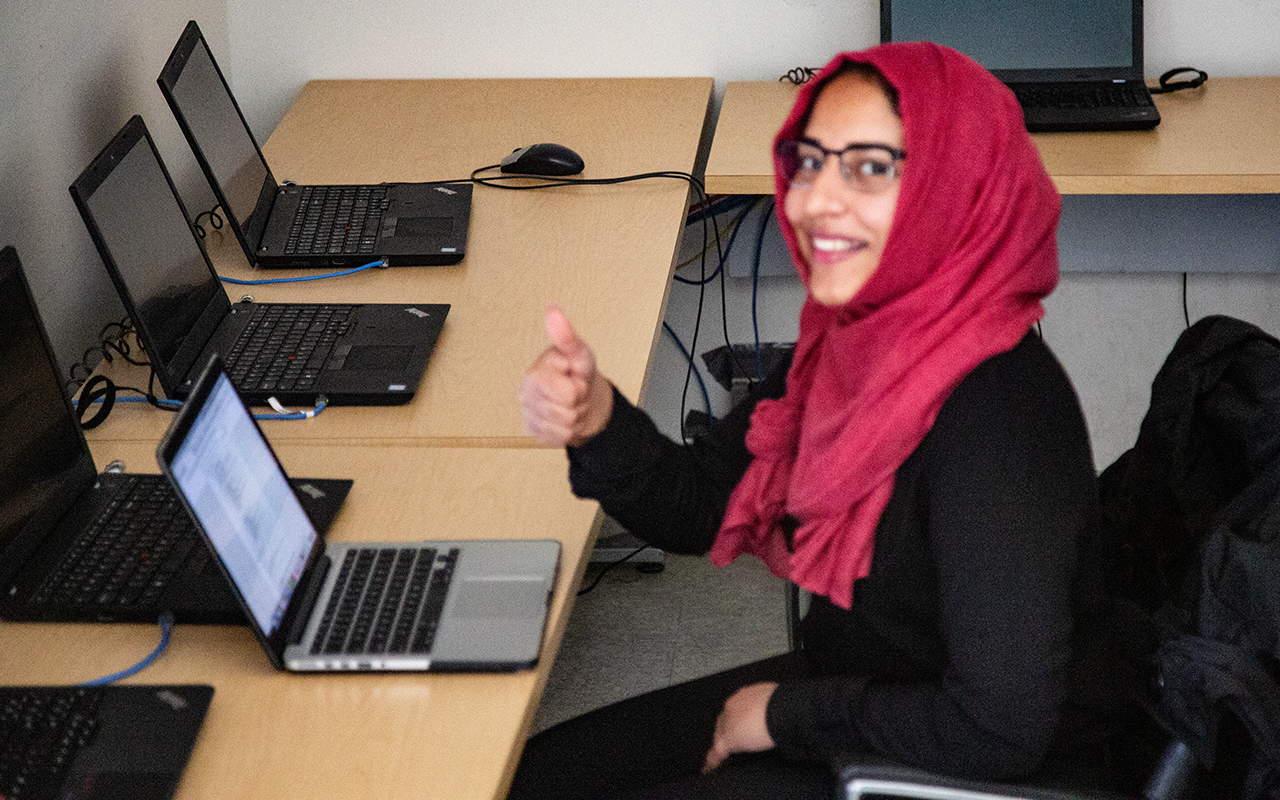main content begins

How did you first become interested in Astronomy and Astrophysics?
I kind of stumbled onto the path of studying Astrophysics. I entered U of T with the full intention of studying physics, and by the end of the first year I thought maybe I should take one of the introductory astronomy courses. It ended up being the Stars and Planets course, which was equal parts challenging and eye-opening. As clichéd as it sounds, it really did spark that innate interest that all of us have, to endeavor to get a little bit of knowledge about the great vast unknown out there.
Tell us about your research project
My research pertains to identifying and probing Hard X-Ray selected Radio Active Galactic Nuclei – which are AGNs. AGNs are essentially super-massive black holes that reside in the centre of galaxies. I would like to think of them as these massive monsters that chew matter and spit it out so violently that it makes it really hard for us to try to understand them.
Over the past two decades, AGNs have been at the forefront of galactic evolution research. A lot of the models that attempt to explain how galaxies evolve require the host to have these active nuclei, to account for the observed relationships between the black hole’s mass, the galaxy’s bulge properties and the overall stellar population.
My focus is particularly on radio loud and quiet AGNs. These galaxies often have gigantic jets and lobes of relativistic particles that deposit mechanical energy into the interstellar medium, and that may either inhibit or trigger star formation. My goal is to understand more about these galaxies.
Can you paint me a picture of what you do on a day-to-day basis?
The majority of my work is computational in nature. It’s dealing with copious amounts of astronomical data and doing statistics on it. So, I’m often calibrating and comparing various parameters, and analysing plots.
Are you enjoying working with your team?
It has been a very memorable and productive experience working with my team. My supervisor Dr. Man, and co-supervisor Dr. Alexandroff, have always been forthcoming with their guidance and encouragement for whatever line of inquiry I choose to pursue regarding my research as well as constructive criticism on my progress. Together with the SURP colleagues in my team, they are always an excellent source of motivation, never tire of answering my often-bizarre questions … and they also laugh at my lame jokes! I’m looking forward to the rest of the summer, working with them.
What are your future plans?
After my undergraduate education I would very much like to pursue graduate education in Physics, or perhaps Astrophysics, but I still have two years of my undergraduate degree to go and I plan on further exploring the myriad of sub-fields of physics.


